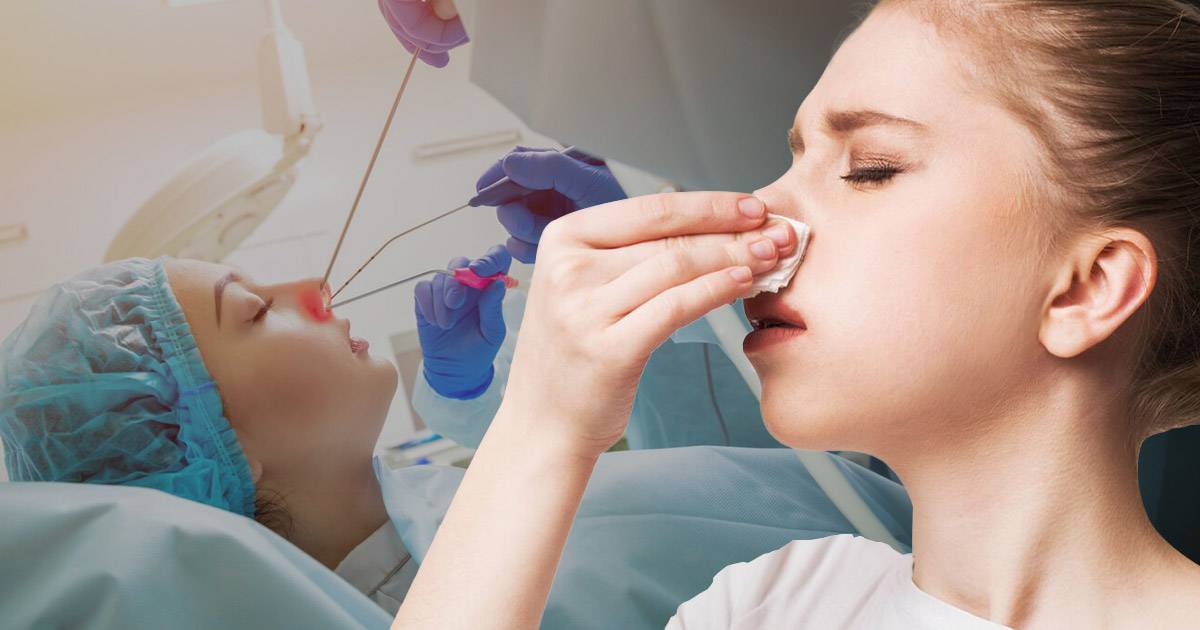What to Expect After Nasal Polyps Removal: Recovery Tips and FAQs

Nasal polyps are soft, non-cancerous growths that form inside your nasal passages and sinuses. They usually appear due to long-term inflammation from issues like allergies, asthma, or frequent sinus infections. People with nasal polyps often face ongoing problems such as a stuffy nose, a reduced sense of smell, sinus pressure, and repeated sinus infections. These symptoms can make everyday activities difficult and lower the quality of life.
A study in the Annals of Allergy, Asthma & Immunology found that people with nasal polyps often have a poorer quality of life, especially with sleep problems and daily productivity. When treatments like nasal sprays or medicines don’t work, doctors might suggest surgery to remove the polyps.
Nasal Polyp Surgery and Its Implications
When medications don’t work to manage nasal polyps, doctors might suggest endoscopic sinus surgery. This procedure uses a small tube with a light and camera to see and remove the polyps and any other blockages in your sinuses. The main goal is to help you breathe better and improve your sinus health. This surgery is usually done on an outpatient basis, so you can go home the same day. Knowing what to expect during recovery is key to healing properly.
What to Expect After Nasal Polyp Removal
After having nasal polyps removed, there are a few things you can expect in the immediate days following your surgery:
- Bleeding: It’s common to have some bloody discharge for three to five days after the surgery, especially when you rinse your sinuses. Don’t be alarmed by this—it’s a normal part of the healing process. Using a nasal spray like Afrin can help control the bleeding.
- Pain and Discomfort: You’ll likely feel pressure and aching in your nose and sinuses for several days. This discomfort is normal and can usually be managed with over-the-counter pain relievers like extra-strength Tylenol or any pain medication your doctor has prescribed.
- Fatigue: Feeling very tired and worn out for about a week after surgery is typical. Your body needs time to heal, so it’s a good idea to take at least a week off work to rest and recover properly.
Understanding these immediate post-surgery experiences can help you prepare both mentally and physically for the recovery journey ahead. Knowing what to expect can make the process less stressful and ensure you’re ready to take the necessary steps for a smooth healing process.
Post-Operation Tips for Nasal Polyp Recovery
Once you’ve had the surgery and are on the road to recovery, it’s important to know that your journey doesn’t end there. You need to follow some expert tips to ensure you heal well. Here are some simple guidelines:
- Avoid Blowing Your Nose: Don’t blow your nose for at least 10 days after surgery. This can cause heavy bleeding and interfere with healing.
- Limit Strenuous Activities: Avoid heavy lifting or intense exercise for the first week. Try not to bend over or do anything that increases blood pressure in your head. Start with light activities as you feel better.
- Use Saline Spray: Mist your nasal passages with saline spray every couple of hours. This keeps your nasal passages moist and helps them heal.
- Perform Sinus Irrigation: Use a sinus rinse kit at least twice a day. This helps clear out debris and reduces the risk of infection.
- Skip Steroid Nasal Sprays: Don’t use steroid nasal sprays for at least two weeks after surgery unless your doctor says otherwise. Give your nasal passages time to heal naturally.
- Attend Follow-Up Visits: Make sure to go to all your follow-up appointments. These visits let your doctor check your progress and make sure you’re healing correctly.
- Stay Hydrated and Eat Well: Drink plenty of water and eat a balanced diet. This supports your body’s healing process.
FAQs About Nasal Polyps Recovery
1. How long does it take to recover from nasal polyp removal surgery?
Most people start to feel better within a week, but full recovery usually takes about 2 to 4 weeks. It’s important to follow your doctor’s care instructions during this time.
2. When can I start exercising again after nasal polyp removal?
Avoid strenuous activities and heavy lifting for at least a week after surgery. You can start light activities after the first week, but always check with your doctor before getting back into your exercise routine.
3. Is it normal to have bleeding after nasal polyp removal surgery?
Yes, it’s normal to have some bloody discharge for three to five days after surgery, especially when you rinse your sinuses. If the bleeding is heavy or doesn’t stop, contact your doctor right away.
4. What should I avoid eating after nasal polyp removal surgery?
There aren’t specific foods you need to avoid, but try to eat a balanced diet rich in vitamins and minerals to help with healing. Avoid very hot or spicy foods if they bother your nasal passages.
5. How often should I use saline spray or sinus irrigation after surgery?
Use saline spray every couple of hours and do sinus irrigation at least twice a day. This helps keep your nasal passages clean and supports healing. Always follow your doctor’s specific instructions for nasal care.
Enjoying the Benefits of Your Recovery
Once you’ve successfully recovered from nasal polyp removal surgery, you can start to enjoy the benefits of your careful aftercare. Breathing will become easier, and your sinus health will improve. Following the post-surgery tips helps you feel more comfortable and healthy. Keep up with good nasal care habits to maintain these positive changes and prevent future problems. Enjoy your new ease of breathing and the better quality of life that comes with it!
